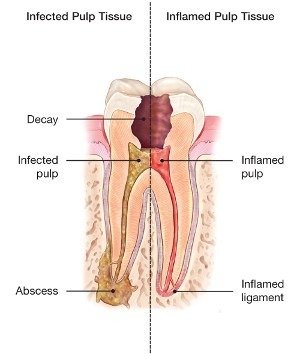- 201-866-8880
- office@dentalworldnj.com
- 120 48th St, Union City, NJ 07087
- 201-866-8880
- Book Appointment
If you require root canal treatment, you can rely on the skilled team at Dental World. With extensive experience in endodontic care, we ensure a smooth, comfortable procedure from start to finish. Your oral health and comfort are our top priorities.
A root canal is among the most frequently performed dental procedures, with over 14 million conducted annually. This straightforward treatment can preserve your natural teeth and avoid the necessity for dental implants or bridges.
Inside your tooth lies the pulp, a cluster of blood vessels that contribute to tooth formation. The pulp can become infected due to trauma, deep decay, cracks and chips, or repeated dental procedures. Signs of infection may include visible injury or swelling of the tooth, temperature sensitivity, or pain in the tooth and gums.
Step-by-Step Root Canal Procedure:

When your root canal therapy has been completed, a record of your treatment will be sent to your restorative dentist. You should contact their office for a follow-up restoration within a few weeks of completion at our office. Your restorative dentist will decide on what type of restoration is necessary to protect your tooth. It is rare for endodontic patients to experience complications after routine endodontic treatment or microsurgery. If a problem does occur, however, we are always available to respond. To prevent further decay, continue to practice good dental hygiene.
The cost associated with this procedure can vary depending on factors such as the severity of damage to the affected tooth and which tooth is affected. In general, endodontic treatment is much less expensive than tooth removal and replacement with an artificial tooth.